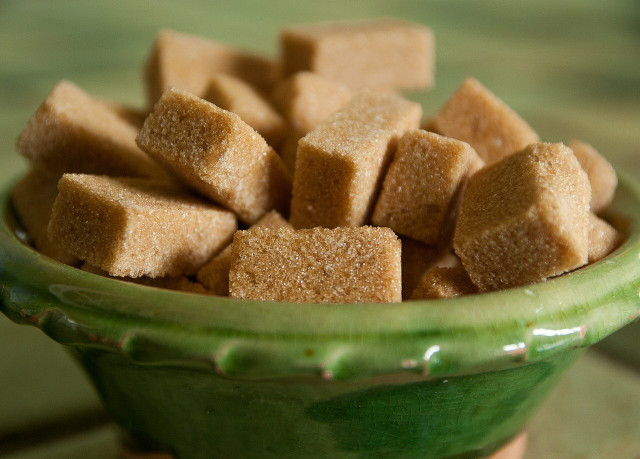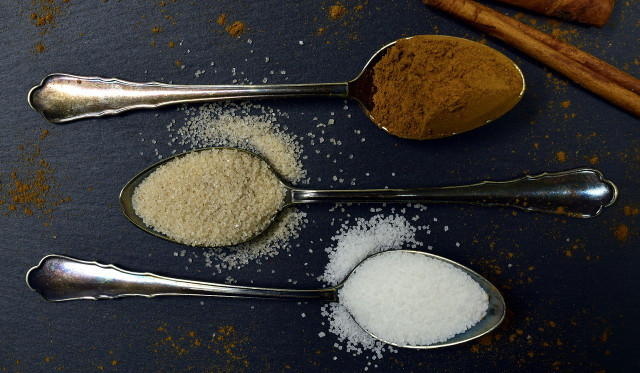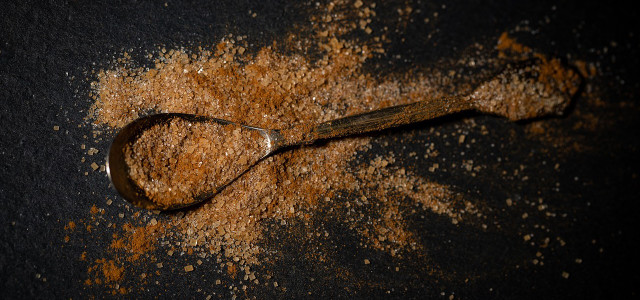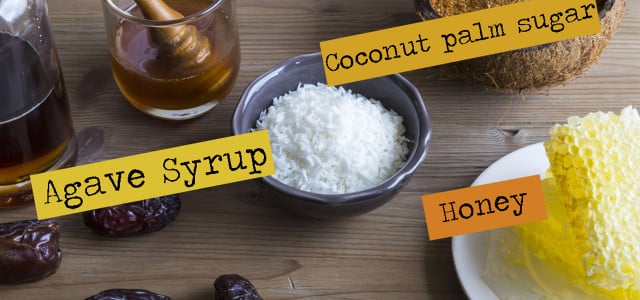Is brown sugar vegan? The truth is much murkier than you think. To get right to the heart of the matter, this article will dig deeper below the surface to uncover the controversial link between sugar and bone char. Let’s dive in!
On the surface, brown sugar may seem like the last product you’d expect to be linked to animal products. And sugar is ubiquitous. You don’t have to travel far to find it in many foods and beverages in every store and restaurant across the country. Even if you try to live a vegan lifestyle, it’s seemingly inescapable.
Is Brown Sugar Vegan?

On some level, the answer to the question ‘is brown sugar vegan?’ depends on the strictness of your individual vegan beliefs. The short answer is, while some brands of brown sugar are truly vegan, a lot of them are not. Or, at the very least, it’s nearly impossible to determine due to failures in transparency on brown sugar packaging.
As many vegan readers will know, it’s extraordinarily difficult to avoid animal products entirely. With the shortcuts of capitalism and mass production, your work falls upon your shoulders to stay informed about what products go into your food.
Brown sugar is made by adding molasses to refined sugar. This is where the question if brown sugar is vegan, gets confusing. Whilst the natural brown sugar itself doesn’t contain animal elements, the process used to make the brown sugar can come into contact with animal products. This is because refined sugar comes from sugar refineries that use a compound known as bone char.
The Bone Char Dilemma
Bone char is made from the bones of cattle and is used in many types of sugar. Sugar production companies in the US actually purchase these bones of cattle from far-off countries such as Afghanistan, Argentina, India, and Pakistan.
The FDA understandably prohibits the use of bones from the USA’s meat industry. The reasoning for this is that they cause concern for public health and animal wellbeing. Hence why these bones are imported from other countries.
These bones are heated at incredibly hot temperatures and reduced to carbon char. This carbon char is then in turn, sold to sugar industry companies. The reason for this is because bone char acts as a filter during the refinement process that helps certain types of sugar sources decolorize and crystalize.
When it comes to sugar production, there are two sources that most of the sugar we consume comes from; sugar beets and sugar canes. Cane sugar, therefore, isn’t truly vegan as it comes into contact with this controversial compound bone char, during the crystallization and refinement process.
If you’re a strict vegan, then we advise you to avoid any label that claims 100% cane sugar, with an alternative recommendation being that you instead use only 100% organic beet sugar.
To make matters more confusing, not all sugar refineries use bone char. As an alternative, many sugar refiners use granular carbon instead, making the sugar they produce vegan. However, the confusion lies in the fact that a lot of sugar packaging is ambiguous about how they filter their sugar.
Although some companies use granular carbon, many will source their sugar from different suppliers, adding only to the conundrum. This also increases the probability that bone char was involved in the process somewhere further down the line.
If you’re a vegan, then the use of using animal bones to make sugar is unfathomable. Even if you’re not vegan, transparency in food production is non-negotiable. Therefore you should be concerned about traces of bone char in your refined brown sugar.
5 Brown Sugar Brands that are Vegan
When it comes to full transparency, unfortunately, many leading sugar brands fail to state exactly which refineries they sourced their sugar from, making it all more difficult to know for sure if these brands use bone char.
If you’re from the United States, you will have to be slightly more meticulous when you head out to buy some brown sugar. Fortunately, ever since January 2020, all organic USDA-approved sugar must proudly display a certified logo on its packaging. If the brown sugar brand has this on the front, it’s vegan.
To help you navigate easier down the baking aisle, and to streamline the overall process, here’s a quick list of five vegan-friendly organic brown sugar brands that are readily available in local stores:
- Wholesome Sweeteners Fair Trade Organic Dark Brown Sugar
- Wholesome Sweeteners Fair Trade Organic Light Brown Sugar
- Trader Joe’s Organic Brown Sugar
- Woodstock Farms Organic Brown Sugar
- Zulka Brown Sugar
The devil is in the details, so it’s always best to read the label. Nevertheless, once you know what to look out for, it’s much easier to determine which brands are genuinely vegan.
Other Types of Vegan Sugar



To reiterate, organic brown sugar made from beet sugar will always be 100% naturally vegan whether it’s organic or not as the production process doesn’t involve bone char filtering. As a general rule, organic, certified brown sugar brands are the quickest choice.
However, these are not the only type of sugars to be vegan. Here’s a quick lowdown on the most commonly available types of vegan sugars to look out for:
As we mentioned previously, bone char isn’t approved by the USDA so any sugar brands with the USDA Organic Sugar stamp of approval will be vegan.
- Turbinado Sugar: Although it happens to be made from sugar cane, it differs greatly from refined sugar as Turbinado sugar is ‘unrefined’ or ‘raw’. This means it isn’t decolorized or filtered with bone char, making it vegan.
- Demerara Sugar: A large grain raw sugar, demerara sugar is vegan as it doesn’t require bone char to be produced. It is however made with molasses.
- Muscovado Sugar: Another vegan sugar that circumvents bone char. In comparison to the previous two entries, muscovado sugar is less processed. It’s also produced with organic molasses, although it retains a stronger molasses flavor which gives it a moisture texture.
Less common unrefined ‘raw’ sugars that are entirely vegan:
- Panela Sugar
- Jaggery Sugar
- Rapadura Sugar
- Piloncillo Sugar
- Coconut Palm Sugar
As you may have guessed, these unrefined sugars are vegan as they don’t experience a refining process that involves bone char. If in doubt, always buy local organic and fair trade sugar if possible, or failing that, make it yourself.
We hope that this article has been invaluable and insightful. The next time you find yourself perusing the baking aisle, you can much more easily find vegan-friendly sugar, thanks to your newly gained knowledge.
Read more:
- Vegan Honey Alternatives: 4 Plant-Based Substitutes
- Is Ketchup Vegan? Here’s Everything You Need to Know
- Vegan Honey Alternatives: 4 Plant-Based Substitutes
Important Information regarding Health-related Topics.
** Links to retailers marked with ** or underlined orange are partially partner links: If you buy here, you actively support Utopia.org, because we will receive a small part of the sales proceeds. More info.Do you like this post?








